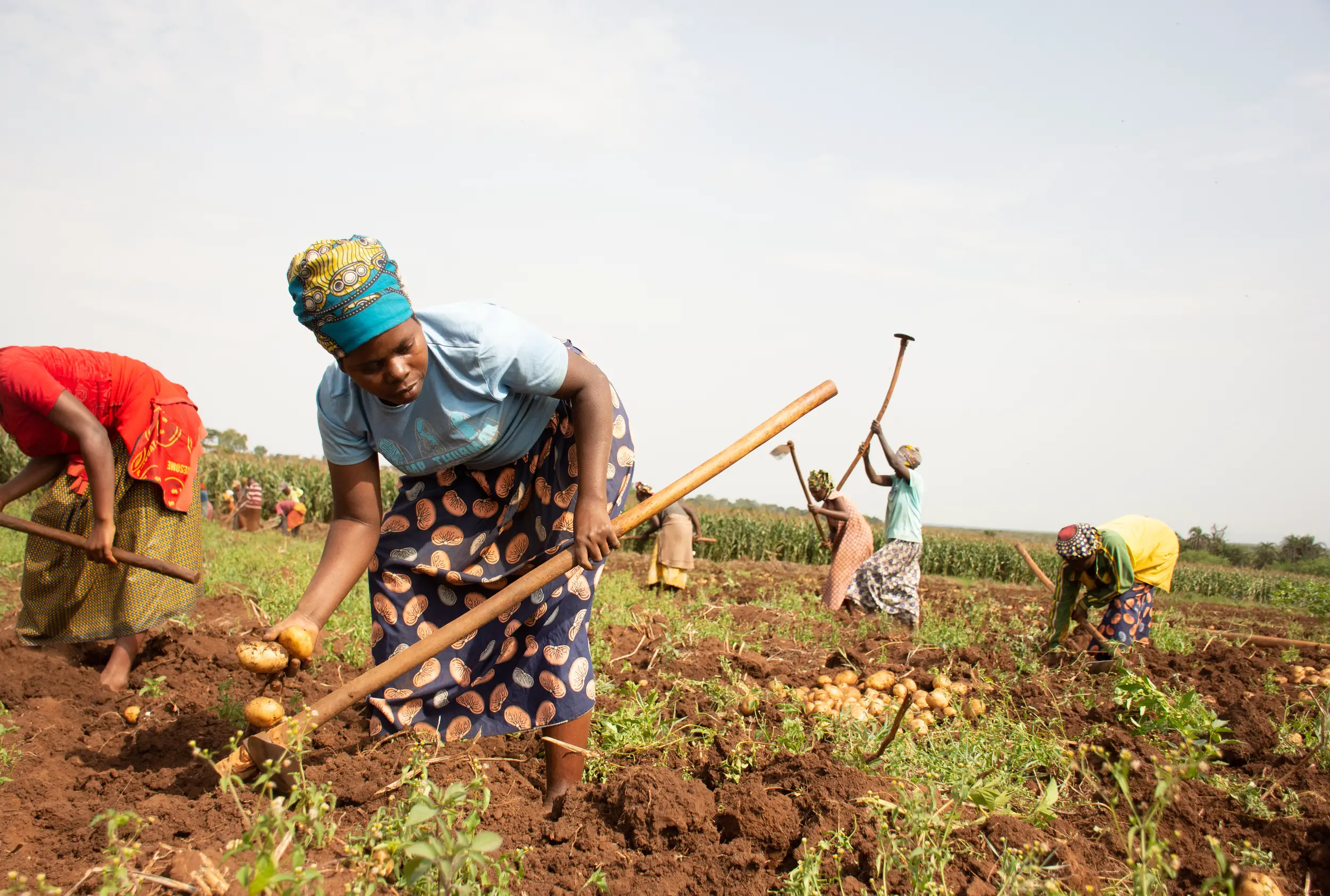Climate change, one of the significant challenges facing the world, has profound effects on agriculture globally, and Rwanda is not exempt from these impacts, particularly on potato farming, a crucial crop in the country.
Potato Damage Due to Climate Change
Climate change, including rising temperatures, unusual rainfall, and natural disasters such as floods or droughts, severely affects potato farming. These changes disrupt the growing season, making it challenging for farmers to plan the timing of planting and harvesting. Extreme temperatures can prevent potatoes from growing properly, leading to reduced yields.
New Diseases and Pests
Climate change introduces new diseases and pests that can damage potato crops. For example, “late blight,” a disease that affects potatoes particularly during heavy rainfall, has become more prevalent due to climate changes. This increases the need for expensive pest control measures, raising costs for farmers.
Altered Harvest Seasons
Climate change also alters weather patterns, making it difficult for farmers to determine the optimal times for planting and harvesting. Unseasonal rainfall or droughts can lead to poor or damaged potato crops, resulting in significant losses.
Decreased Yields and Increased Prices
Due to these climatic changes, potato yields are declining, which drives up market prices. This situation makes potatoes more scarce or expensive, creating hardships for many low-income households that rely on potatoes as a staple food.
Potato farmers from Musanze District, specifically in Kinigi Sector, reported to umuringanews.com that the adverse effects on their yields were significant, particularly as rains fell earlier than expected, damaging the crops.
Louise Uwimana, a potato farmer, shared that she used to take loans before planting potatoes to ensure her farming was up-to-date. However, this year, the situation did not favor her. “I used to harvest between 3 and 4 tons, but this year I didn’t even get one ton. This has caused me substantial losses and I’m struggling to repay my bank loan,” Uwimana said. She noted that climate change has had severe impacts on her, her family, and her employees.
Government Measures
The Rwandan government and agricultural partners are assisting farmers in coping with these challenges through various measures, including encouraging the use of climate-resistant seed varieties, appropriate use of fertilizers and pest control, and promoting irrigation farming.
Researchers are working on developing potato varieties that can withstand rising temperatures and excessive rainfall. New irrigation methods are being introduced to help farmers maintain and harvest potatoes during abnormal weather conditions.
In the fight against the effects of climate change, changing farming practices, enhancing farmer capabilities, and advancing agricultural technology are crucial to ensuring that potato farming in Rwanda continues to yield productive results and that farmers maintain a good quality of life.
BY NIKUZE NKUSI Diane





